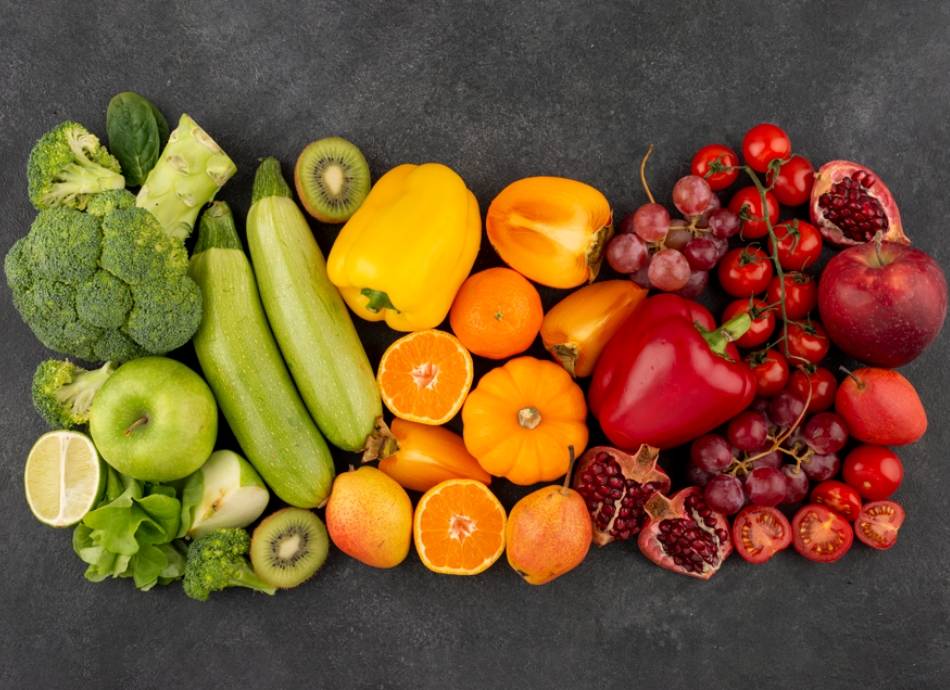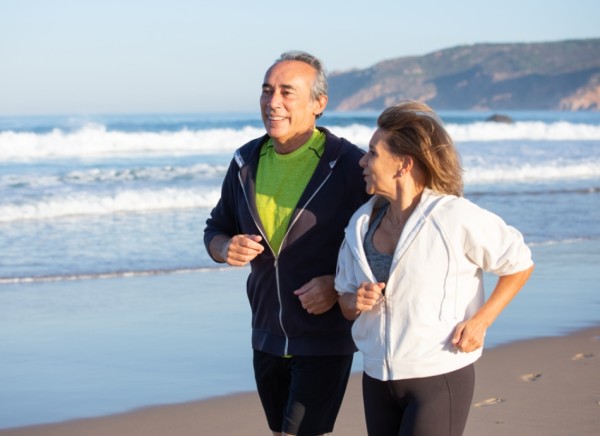You can now add Healthify as a preferred source on Google. Click here to see us when you search Google.
Cancer – reducing your risk through lifestyle
Key points about reducing your risk of cancer through diet and activity
- The way you live can affect your chances of getting some types of cancer.
- Focusing on what you eat and drink and how much you move your body are the best ways to lower your risk.
- There's a link between an increased body size and some cancers. It is important to do what you can to lead a healthy lifestyle to minimise your risk.
- Here are 8 key areas to focus on to reduce cancer risk for yourself and your whānau.

This page is for people who want to lower their risk of cancer by making lifestyle changes. The way you live can affect your chances of getting some types of cancer. What you eat and how much you move are the best ways to lower your risk.
Food and activity are connected, which means what you eat and how much you move are both important. It's not about one or the other, it's the combination of your eating and activity that counts. For example, eating whole grains won’t help if you drink a lot of sugary drinks. Being active doesn’t make up for drinking alcohol. These changes should be part of your everyday life, not just for a short time. Involve your whole whānau, set small goals, and support each other with any changes you want to make.
Note: Food and physical activity can help reduce your cancer risk, but other factors can also play a part. These include your family history, your genes, how much sun you get, and whether you smoke or vape.
Being a healthy weight helps to protect against cancer. A healthy weight can lower inflammation and keep your hormone levels balanced.
Carrying extra body fat has been linked to a range of different cancers:
- Breast – after menopause
- Colorectal
- Endometrial
- Oesophageal
- Gall bladder
- Kidney
- Liver
- Mouth and throat
- Ovarian
- Pancreatic
- Prostate (advanced)
- Stomach.
Some reasons people gain weight are:
- Spending too much time sitting and watching screens.
- Not enough daily movement or exercise.
- Consuming sugary foods and drinks.
- Eating too many refined and processed grains, such as white bread or pastries.
- Eating larger portions.
Look at making small changes to your daily habits – especially with foods you eat often. Combined with being more active, it will help you work towards a healthier weight. Read more about a healthy approach to weight loss.
Eating whole grains, vegetables, fruit and legumes can help to protect you from some cancers. These foods are full of vitamins, minerals, antioxidants, and fibre. They work together to reduce your risk of cancer.
Make these foods a regular part of your meals every day – they should fill most of your plate.
Whole grains
Aim to have at least 3 servings of whole grains a day. Try simple changes, such as choosing whole-grain bread instead of white bread. Choose brown rice over white rice. Add barley to homemade soups. Try rolled oats as porridge or sprinkle a teaspoon of wheat bran into yoghurt.
Vegetables and fruit
Aim for at least 5 servings of vegetables and 2 servings of fruit each day. It's best to eat mostly non-starchy vegetables. Try to keep portions of starchy vegetables small. A serving is 1 cup of salad, half a cup of cooked vegetables, 1 piece of fruit, or what fits in your hand.
- Starchy vegetables are cassava, corn, green bananas, kūmara, potatoes and taro.
- Non-starchy vegetables are colourful vegetables and leafy greens. These include broccoli, cauliflower, silver-beet, and tomatoes.
Legumes
Legumes include lentils, kidney beans, chickpeas, and edamame beans. If these are new foods for you, start by adding some to soups, casseroles, and mince dishes. Canned legumes are a cheap and easy way to add legumes to your meals.
The New Zealand Heart Foundation has a free cookbook(external link) all about beans and other legumes.
Being active and taking breaks from sitting can help protect you from some types of cancer. Walking is a way of moving that many people can do and it can help manage weight.
Aim to do at least 2.5 hours of moderate OR at least 1.25 hours of vigorous physical activity each week.
- Moderate exercise makes you breathe harder and your heart beat faster than usual. You should still be able to have a chat. Examples include brisk walking, cycling, vacuuming, gardening, swimming, and dancing.
- Vigorous exercise means you can’t say more than a few words before stopping to catch your breath. Examples include running, jogging, fast swimming, fast cycling, aerobics, and playing sports.
You can check how active you're being by looking at how much your heart rate goes up when you exercise. Read more about how to measure your heart rate.

Image credit: Freepik
Takeaways and highly processed foods are high in fat, sugar, and salt and can lead to weight gain. Try to only have these occasionally, as a treat, instead of every day.
Try some of these ideas as a start
- Choose takeaways with added vegetables.
- Have a vegetable stir-fry or vegetarian curry.
- Have a steamed dumpling with a side of greens.
- Try a whole-grain wrap or pita bread with tuna, chicken, falafel and salad.
- Make your own pita chips to have with salsa or guacamole.
- Choose a whole-grain sandwich or roll with a salad filling.
- For puddings/desserts, try unsweetened yoghurt and some fruit. Try a baked apple stuffed with dried fruit.
- For a sweet snack have a small piece of dark chocolate or fruit.
Limit red and processed meats
Eating too much red meat and any processed meats can increase your risk of bowel cancer. Processed meats include bacon, sausages, ham and other deli meats. Chicken, fish and vegetarian meals can be part of a healthy diet.
To lower your cancer risk, try to eat red meat 3 times a week or less. Keep the serving small – the size of the palm of your hand.
To reduce your intake of meat, add legumes to your meals, such as
- lentils with mince
- canned kidney beans to a stew
- chickpeas in a curry
- canned cannellini beans in a tomato pasta sauce.
This way, you can make your red meat go further and get some extra fibre.
Sugary drinks
Drink mostly water and low-sugar or no-sugar drinks. Water is the best choice. Good choices can include fizzy water, milk, tea, and coffee without sugar added. Try to avoid or drink less fruit juice – dilute it with fizzy water.
Alcohol
When the body breaks down alcohol, it produces substances that can harm your DNA, which may lead to cancer. Drinking too much alcohol can also damage your liver. There is strong evidence that alcohol increases the risk of some cancers. These are mouth and throat, oesophageal, breast, bowel, stomach, and liver cancers.
For some of these cancers, alcohol is particularly harmful if you smoke and drink at the same time. It can make it easier for tobacco smoke to harm your cells. Alcohol is high in calories and lacks any helpful nutrients that your body needs.
Tips to lower your alcohol intake
- Alternate 1 alcoholic drink with 1 non-alcoholic drink.
- Have single measures of spirits.
- Sip drinks slowly.
- Have some alcoholic free days.
- Choose low-alcohol or alcohol-free drinks. Try a mocktail or alcohol-free beer, wine, or spirits.
- If you drink to relieve stress, try going out for a walk or dancing to your favourite song.
Note: There is no safe level of alcohol consumption. If you currently don't drink alcohol, don't start. If you do drink alcohol, it's better to drink less.
Find out more about harmful drinking and the benefits of drinking less alcohol.
It's best to get all your nutrients from the food you eat. Supplements can have a much higher level of nutrients than you need. Your body only processes what it needs, and excessive amounts can be harmful. Check with your healthcare provider before taking supplements.
If you have any questions about your health, talk to your healthcare provider.
Apps
Nutrition, exercise and weight management apps
References
- Ten tips to reduce your cancer risk(external link) Cancer Society, NZ
- 1 in 3 cancers can be prevented(external link) Cancer Council, Australia
- Does having a healthy diet reduce my risk of cancer?(external link) Cancer Research, UK
- Our cancer prevention recommendations(external link) World Cancer Research Fund, UK
- No level of alcohol consumption is safe for our health(external link) World Health Organisation, 2023
Credits: Healthify editorial team. Healthify is brought to you by Health Navigator Charitable Trust.
Reviewed by: Lily Henderson, Registered Dietitian, Nicola Brown, Advanced Clinical Dietitian, Oncology, Auckland
Last reviewed:





